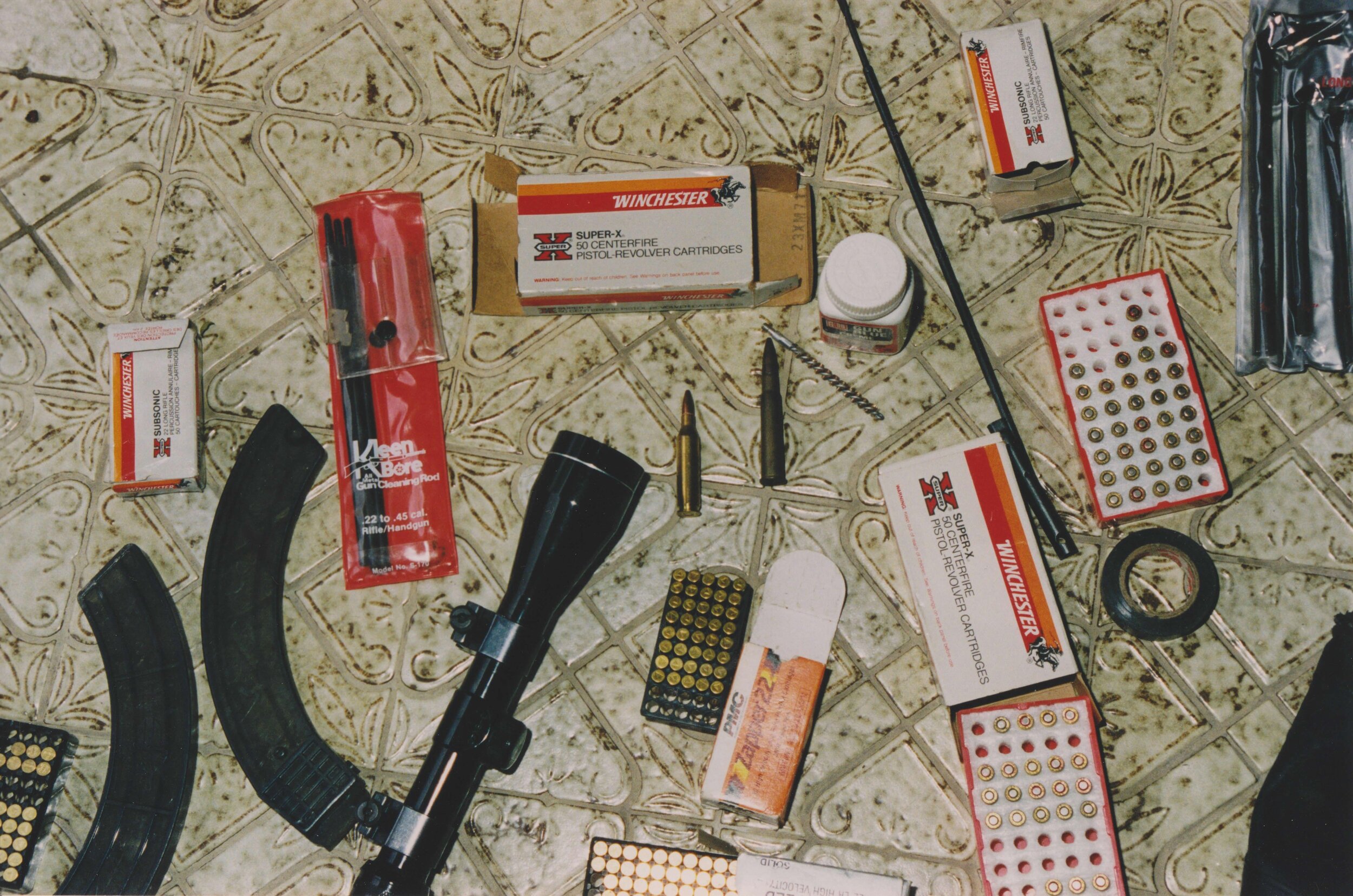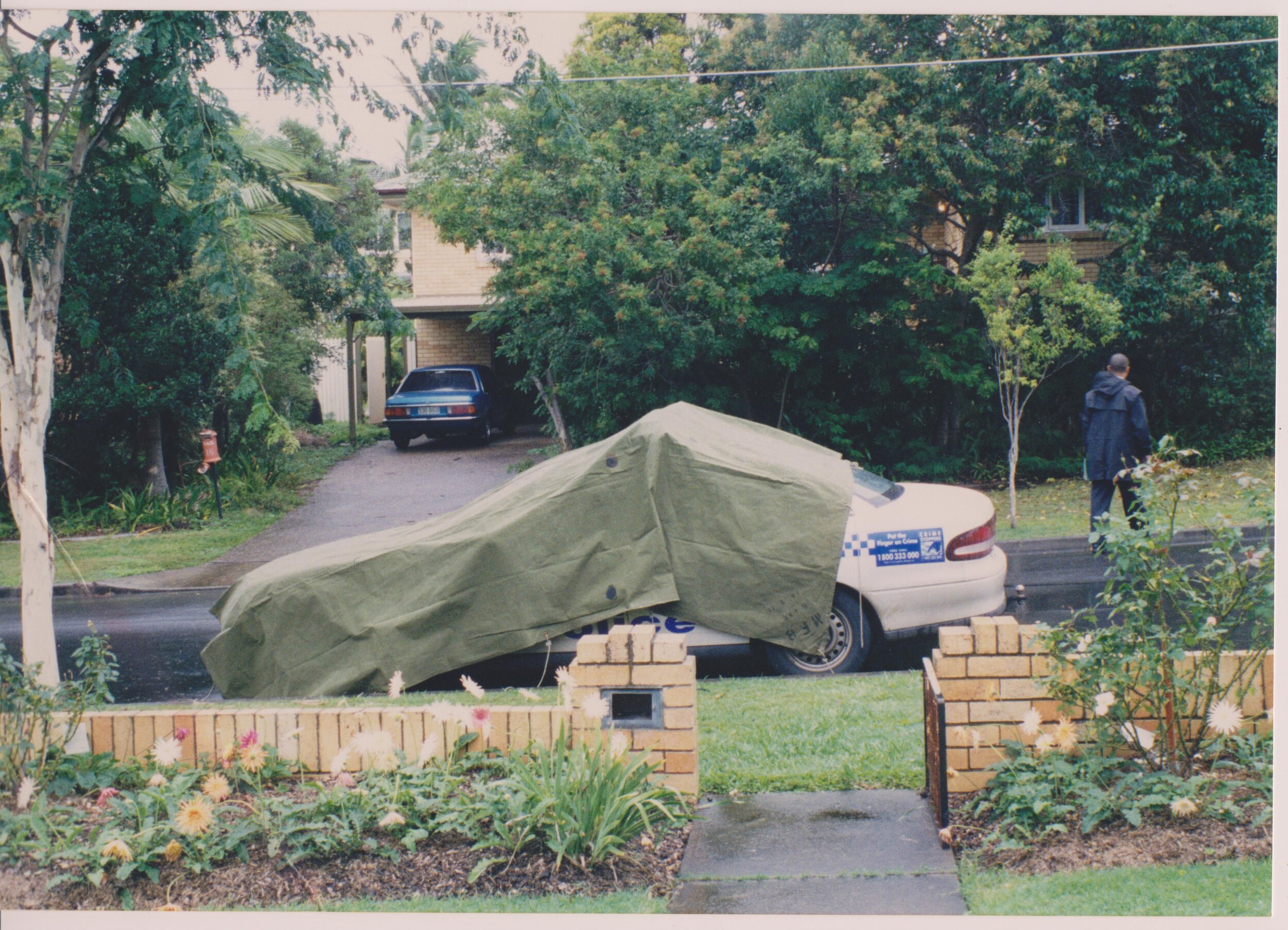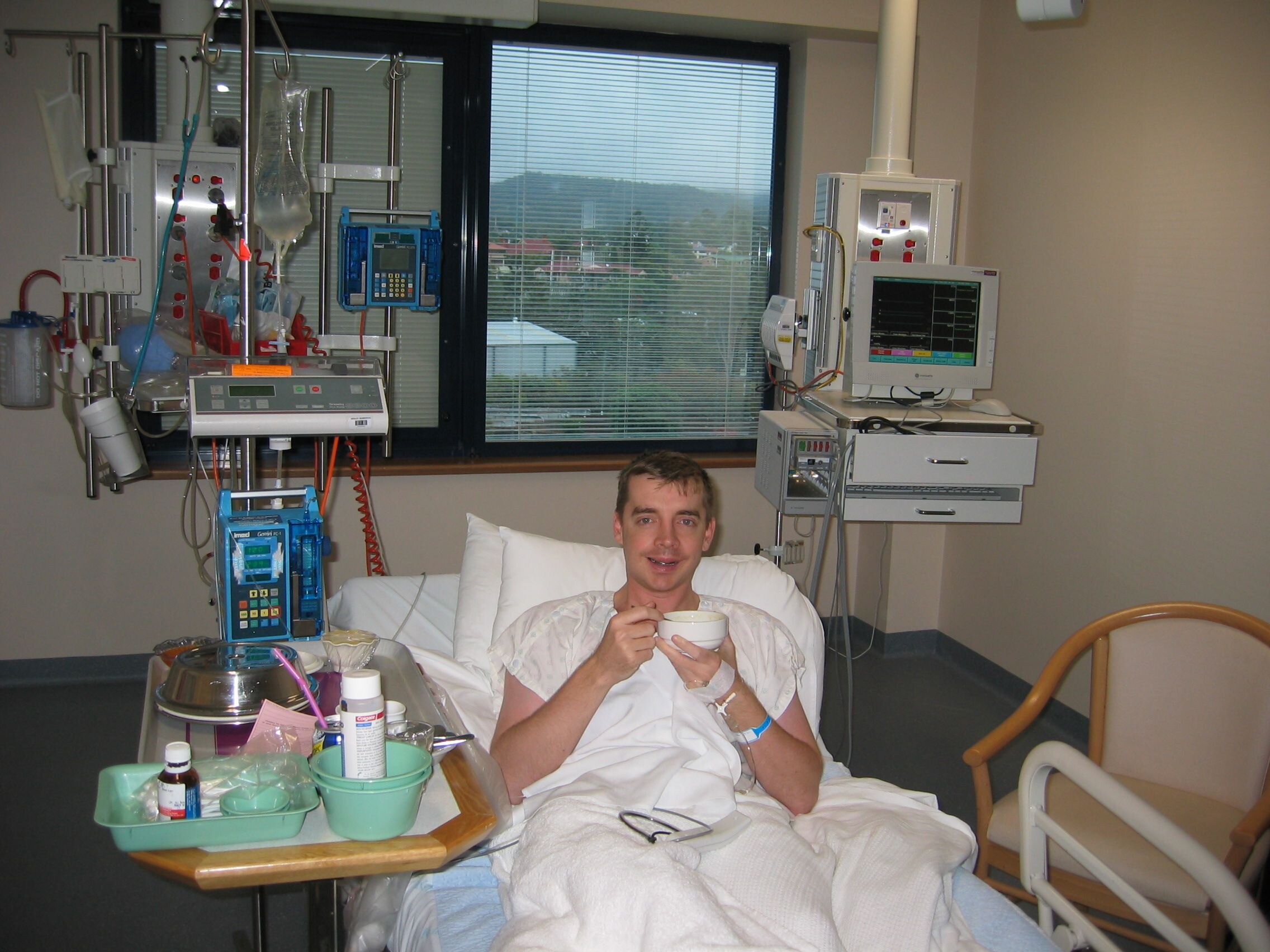A Chronic Entrepreneur: Daryl Elliott Green
Daryl Elliott Green narrowly escaped death whilst on duty as a police officer in 2000, when he was ambushed and shot in the face and shoulder. He had years of on-going maxillofacial reconstruction surgery, however remained in the police force throughout that time. Fifteen years later, he was awarded a 12-month speaking scholarship by PSA, which led him to start TWICE SHOT®, his full time professional speaking business, where he has taken a horrific situation and turned it on it’s head to inspire and help others. Read on to find out more about the incident and how he has used it to establish his path towards entrepreneurship.
What’s your Chronic?
Post Traumatic Stress Disorder (PTSD)
What makes you an Entrepreneur?
I founded my own professional speaking business and registered the trademark TWICE SHOT® in Australia and the USA.
How did the path of entrepreneurship come to you?
I was on duty 1 May 2000 as a police officer, ambushed and shot in the face and shoulder. I had years of on-going maxillofacial reconstruction surgery, however I remained in the police. I was eventually asked to speak by an instructor to police recruits about my experience.
One afternoon I had a BBQ and friends over. I had just presented to recruits that day. My friend Joel Palmer, who had a financial consulting business, ask me to show him what I was presenting to the recruits and I brought up my PowerPoint I was using with a few photographs and lessons. He thought to himself, 'Hmmm, room for improvement.'
Joel had training from a speaking coach, for the financial advisement breakfasts he ran for his clients. Joel, not telling me anything, invited me to a function which he arranged for both me and his coach, Michael Alafaci, to be attending. He said to his coach, 'Mike, I'd like you to meet Greeny, he has a very interesting story.'
I told Mike a little bit about my experience and he later confided in me. He said that his first thought was, 'Wow Greeny, you've got a lot to offer the world by speaking, but I know you on a police officer's wage can't afford my fees.' But out of the goodness of his heart, he took me under his wing, volunteered his time, and coached me in speaking. He introduced me to Professional Speakers Australia (PSA) and 6 months later I was award a 12 month speaking scholarship by PSA, which led me to start TWICE SHOT®, my full time professional speaking business.
What’s your diagnosis story? How old were you?
Two to three weeks after the shooting I was diagnosed with PTSD. I was 27 years of age when the shooting and diagnosis took place. The psychiatrist who started to treat me said, ‘Daryl you were ambushed and shot in the face and shoulder, an attack which came out of thin air, in a completely calm environment just like you and I are sitting here. A soldier before entering battle has time to mentally prepare and his body physically prepare with adrenalin rushing through his system. The only thing worse that could happen to you from a psychological perspective, would be seeing your family executed in front of you.’
What’s your frame of mind like at the moment? How have you survived the pandemic?
I am enjoying the moment, balanced with sacrificing to created an even brighter future. I’m surviving the pandemic with the same practices and techniques I used to survive and manage chronic PTSD, particularly depression. Some of these are:
Prioritise:
Sleep (I aim for 8 hours and I still use sleeping tablets)
Healthy eating (I follow the Mediterranean diet and avoid processed foods as much as I reasonably can)
Exercise (I’m an avid runner, I run 30 minutes each day, but I have suffered a number of running injuries over the years and then I just switch over to walking to recover from the injury / surgery). In summer I practice resistance band swimming.
The first thing I do in the morning is make my bed. Get out of my pyjamas, shave and shower, and get ready to tackle the day (being a police officer, I’ve seen first hand, one of the first things people who start to suffer a mental illness is letting go of their personal hygiene).
I follow an established routine. Follow my daily routine, which is written down and cross off items as I work through them.
I visit a friend or family member in person each day for social contact. If I cannot do this due to lockdown, I telephone them and they often are doing the same for me.
Anticipation is one of the most powerful human emotions you can harness to benefit your mental health – I have something each day to look forward to e.g. a lovely homecooked evening meal or a movie or series I’ve been really looking forward to watching in the evening. Series with an episode that has a cliff-hanger ending that I’m craving to watch, I have the discipline to wait for the next day to start the next episode, so I benefit from the feeling of ‘excited anticipation’ throughout that next day.
Having long term goals to look forward to e.g. trekking the Larapinta trail in the Northern Territory with friends. Once overseas travel is a possibility, learning to scuba drive in Asia, and visiting my brother in Europe (he lives in the UK with his family) and share our passion for skiing.
Practicing gratitude, thinking through 5 things I’m grateful right at that moment in time.
Keeping up with the news, but not watching it constantly, it’s too negative, where so much good is going on in the world.
I watch a comedy at the end of the night to make me laugh before going to bed to put me in a light and happy mood. Right now I’m working my way through all the South Park episodes.
Keeping busy, keeping moving – I cook more complex dishes than I normally would, I clean the apartment more than I normally would, I get up from the computer every 25 minutes or so (following the Pomodoro method) to stretch my legs and rest my mind. I find something simple to make me move such as taking the rubbish out, put more of the washing away, grind my coffee beans and make another brew, clean the oven etc.
Limiting Alcohol. With so much free time it’s easier to drink alcohol more than we normally do (or even turn to it as a coping mechanism), so I limit myself to only drinking twice a week and often it’s only once a week, with friends. If I’m in lockdown, I only make it once a week by myself over my BBQ listening to my favourite music.
Lastly, having a passion for history, I know the world has experienced horrific times just as terrible and often much worse than now e.g. the Black Death (plague), the calamity of World War One and Two, and the Spanish Flu pandemic. I know this for sure and remind myself and others regularly – paraphrasing the Stockdale Paradox, ‘We don't know when Covid will end, but we know unfaltering one day it will be a memory and we shall prevail.’
What have you learnt about yourself through this journey? How have you changed, if at all in your relationships, decisions, what you value/your life philosophy?
You don’t know what you can survive or can manage until you are confronted with it. Mindset is the most important thing of all, to overcome or live with adversity. Asking for help can be a game changer. I hug and tell my family members ‘I love you’ before leaving their company, because you never know when it will be the last time you will see them. Experiences are far more rewarding than physical rewards. Decisions – when making big or small decisions, you want to make sure that you’ll never be on your death bed wondering, ‘What if?’.
Did you go through any sort of 12-stages of grief with the diagnosis or take it in its stride?
No stages, basically I was stunned and dazed after the shooting initially. Then 7 weeks after we (I, my partner and Sergeant) were shot in the ambush, Senior Constable Norm Watt of the Rockhampton Dog Squad attended a domestic violence incident. He was shot once in the leg and it severed his femoral artery. If the blood flow is not stopped from this type of wound, you have approximately 4 minutes to live. Help did not arrive in time for Norm, he bled out. I, my partner and Sergeant were all shot multiple times and lived, Norm was shot once and died.
This led to a downward spiral for my mental health and the full onset of PTSD.
What would you say to your ‘first-diagnosed’ self, or someone else who has just been diagnosed with a chronic illness?
Get ready for a long difficult journey, where you’ll meet amazing people to help you on the way, plus some a-holes who you’ll learn to ignore or outmanoeuvre. The lows you’ll experience, will in time through hard work and mindset, be offset by the most amazing life experiences, which you would never truly be able to appreciate if you have not gone on this journey.
Are you on any treatments? What modalities are in your wellness team?
Sleeping medication. At the end of the day, I down tools and treat myself to a run, this is my biggest de-stressing tool. I follow the run by some small pleasures, such as a delicious meal, great movie, time with my father and make sure I have things to look forward to the next day, such as a simple brew of coffee in the morning where I grind the beans freshly myself.
What is a ‘bad day’ for you? How do you look after yourself on a ‘bad day’ or a day that is particularly stressful?
Setbacks, bad news, problems showing up for my elderly family members which I have to manage on my own (the only other close family members who could assist is my brother who lives in the UK with his young family), all of which drain my energy and time, and I can’t focus on my business and my healthy routine. I re-schedule, prioritise and plan the following day, week and sometimes month(s), as necessary to meet the challenge(s), plus get my business and healthy routine back on schedule. I cannot emphasis enough these three simple steps, particularly when dealing with a time critical crisis:
1/ Pause and breathe,
2/ Prioritise, evaluate options and plan, and most importantly,
3/ Act decisively.
Who are your back up dancers?
My father Alan, brother Peter in the United Kingdom and a number of close friends here and abroad.
Daryl’s short film
Best & worst bits of being A Chronic Entrepreneur?
Best bit, taking a horrific situation and turning it on it’s head to inspire and help others.
Worst bit, battling taking time out for yourself while thinking that I could be working on my business instead.
Are you a 5-year planner or are you winging it?
5-year planner definitely! I live by the maxim of Dwight D. Eisenhower, ‘Plans are worthless, but planning is everything.’ I review my long term plan each day, often I don’t change anything, but it keeps my long term goals and plans in the front of my mind.
What are your dream weekend plans and have these changed over the past year?
Dream long weekend plan – a getaway to somewhere new, particularly somewhere like an island, jungle or mountains where I can get back to nature, where there are delicious local meals, and I can do something exciting friends e.g. hiking, exploring caves or a wreck, skiing, learning to scuba dive, white water rafting etc.
Many things were put on hold last year, but I thought I was going to be able to travel to the Northern Territory this August and trek the Larapinta trail with friends. Unfortunately, this was stopped less than a week before we were due to depart thanks to, wait for it, drum roll… lock down! My father, I and many of our friends are fully vaccinated. I’m looking forward to reaching those 70 and 80% vaccination targets set out in the Doherty Institute report. If National and State leaders keep to their agreement to open up at the target vaccination levels, the States can open up to each other and then Australia can open up to the world. Alas finally, we can all enjoy our dream weekends, holidays, reunions and see our businesses and economy flourish.
What are you looking forward to in the next 6 months-1 year?
Looking forward to travelling with friends and experience adventures in the great outdoors, within Australia and hopefully overseas, speaking at more live events rather an virtual events, and starting put jot notes down for a book about my life.
Where can people support you online?












